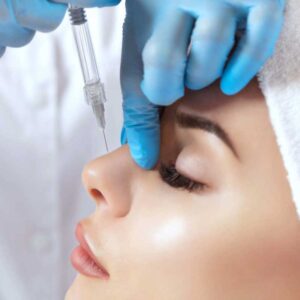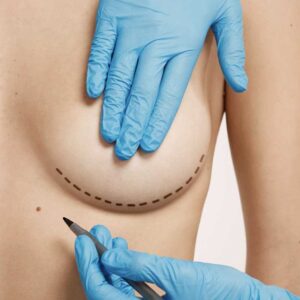- ISTANBUL TURKEY
- CLINIC : +90 530 348 03 68
Nose Surgery: Details, Benefits and Considerations
Nose surgery, medically known as rhinoplasty, is one of the most frequently performed procedures in the field of aesthetic surgery. In this article, we will provide comprehensive information about the details, benefits, processes and considerations of rhinoplasty.
What is Nose Surgery?
Rhinoplasty is a surgical procedure performed to change the shape, size or function of the nose. This surgery can be performed for aesthetic concerns as well as to eliminate respiratory problems. Rhinoplasty improves the overall appearance of the nose, harmonizes it with facial contours and increases self-confidence.
Preoperative Preparation
There are several important points to be considered before nose surgery. First, you need to have a detailed consultation with your surgeon. During this consultation, your surgeon will evaluate your health history, your expectations and the possible outcomes of the surgery. He/she will also provide information about the pre-operative and post-operative process.
If you are a smoker in the preoperative period, it is recommended that you quit smoking at least two weeks before surgery. Smoking can negatively affect wound healing and increase the risk of complications. Blood thinners and supplements should also be stopped before surgery.
Surgery Process
Nose surgery is usually performed under general anesthesia and the operation time varies between 1-3 hours. During the operation, the surgeon makes the necessary changes to the structure of the nose. These changes can be performed on the bone, cartilage and skin of the nose. Depending on the type of surgery, incisions can be made inside the nostrils (closed rhinoplasty) or between the nostrils and at the tip of the nose (open rhinoplasty).
After closing the incisions, the surgeon applies bandages and splints to the surgical site. These applications help to protect the structure of the nose and accelerate the healing process.
Postoperative Period
The healing process after surgery may vary from person to person. It is normal to have swelling, bruising and mild pain in the nose for the first few days. During this period, it is important to use the painkillers prescribed by your surgeon regularly. Also, the surgical site should be kept clean against the risk of infection.
During the first week after surgery, it is recommended that you rest and keep your head elevated. From the second week onwards, you can start taking light walks. However, you should avoid heavy physical activities and exercises for at least 4-6 weeks.
Your surgeon will closely monitor your healing process with postoperative follow-up appointments. During these appointments, the condition of the incisions and the healing process will be evaluated.
Benefits of Nose Surgery
Nose surgery has many aesthetic and functional benefits:
Aesthetic Appearance: Correcting the shape of the nose provides an aesthetically pleasing appearance that is compatible with facial features.
Increased Self-Confidence: Having a more aesthetic nose increases the self-confidence of individuals and makes them feel better about themselves.
Elimination of Respiratory Problems: Correction of structural problems allows the airways to open and breathe more comfortably.
Correction of Facial Proportions: Nose surgery improves the overall harmony and proportions of facial features.
Risks and Complications
As with any surgical procedure, there are some risks and complications associated with nose surgery. These risks include infection, bleeding, anesthesia reactions, scars and skin numbness. To prevent such complications, it is important to follow your surgeon’s instructions carefully before and after surgery.
In the postoperative period, you should be in regular contact with your surgeon to make sure that your symptoms are normal. If you notice anything unusual, you should seek medical attention immediately.
Who Is Suitable for Nose Surgery?
Nose surgery is generally suitable for individuals with the following conditions:
Aesthetic Concerns: Individuals who are not satisfied with the shape of their nose and want an aesthetic appearance.
Respiratory Problems: People who have difficulty breathing due to structural problems.
Injuries: Individuals with deformation in the nose as a result of trauma or injury.
Genetic Factors: People who are genetically dissatisfied with the shape and structure of the nose.
General Health Status: For the surgery, the general health condition should be good and there should be no serious chronic diseases.
Postoperative Care and Recovery
Post-nasal surgery care is critical for a successful recovery. The main points to be considered during the healing process are as follows:
Medication Use: You should take the medications prescribed by your surgeon regularly. These medications help reduce pain and the risk of infection.
Rest: Resting and keeping your head elevated for the first week will help reduce swelling and pain.
Hygiene: Keeping the surgical site clean and dry reduces the risk of infection.
Check-ups: You should attend regular check-ups as prescribed by your surgeon. These checks are important to monitor your healing process.
Compression Bandage Use: A compression bandage reduces postoperative swelling and speeds healing.
Long Term Results
The long-term results of rhinoplasty are generally very positive and satisfactory. After the surgery, the nose gains a more aesthetic, smooth and functional appearance. This increases the self-confidence of individuals and improves their quality of life. However, the permanence of the results depends on the individual’s lifestyle and skin structure. Maintaining a healthy lifestyle and skin care helps the results to last for a long time.
Alternative Treatment Methods
Apart from rhinoplasty, there are other treatment methods to correct the shape and function of the nose. These include fillers, botox and skin tightening creams. However, the effect of these methods is usually not as permanent and effective as the surgical method. Non-surgical methods may be preferred for mild aesthetic problems and temporary corrections.
Conclusion
Nose surgery occupies an important place in the field of aesthetic surgery and helps many people solve their problems with the shape and function of their nose. This surgery offers highly satisfactory results for the right candidates. Carefully following your surgeon’s instructions before and after surgery minimizes the risk of complications and ensures a successful recovery.
If you want to learn more about nose surgery or if you are considering having this surgery, it would be the best step to consult an expert plastic surgeon. Your surgeon can create a customized treatment plan to best meet your expectations and guide you through this process in the best way possible.


Our Words...
We're glad to guest you here







Leave a Reply